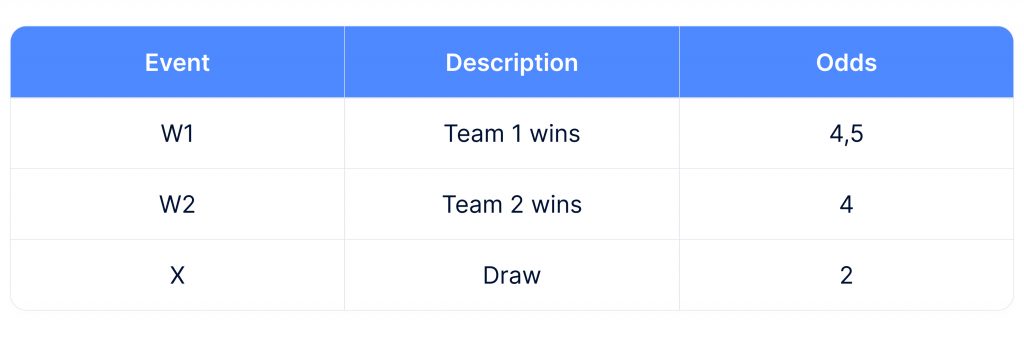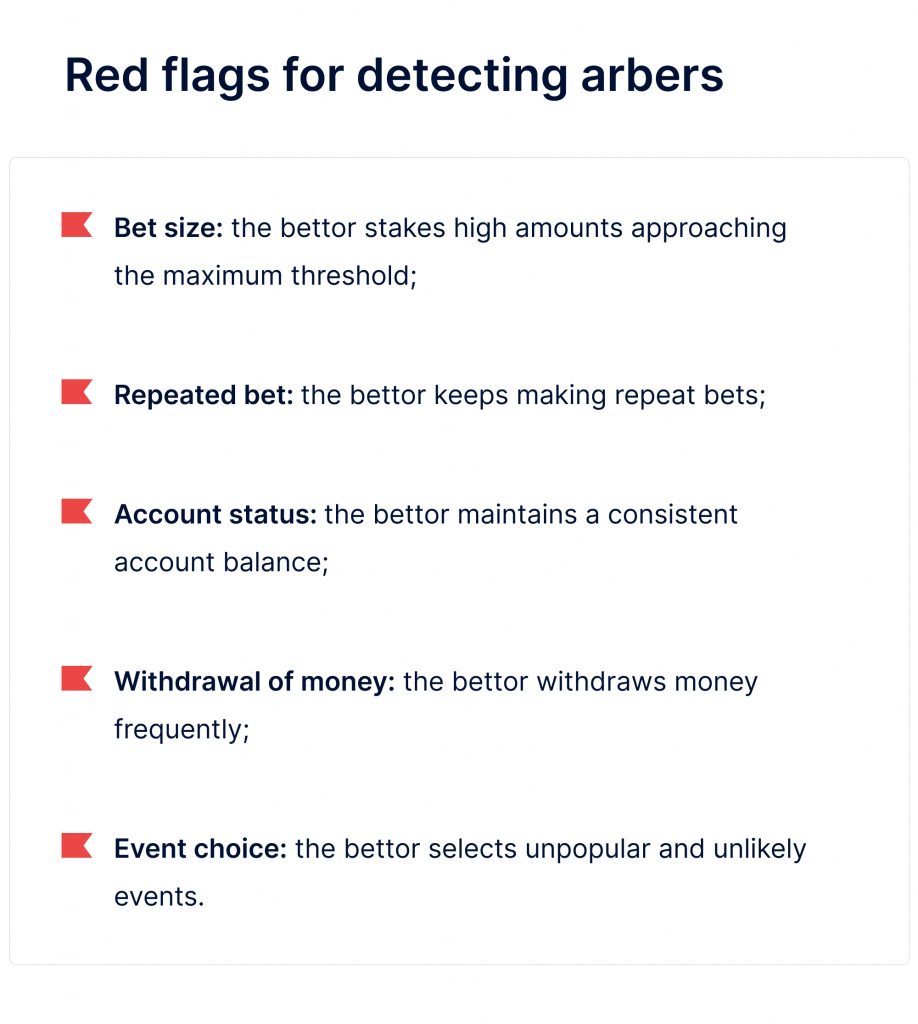Arbitrage in Sports Betting: How Can Businesses Detect It? (2023)
Arbitrage betting is a strategy aimed at beating bookmakers. But how does it actually work? And does it really harm betting businesses? This article answers these questions and reveals how KYC tools can be used to detect arbers. Let’s get into the details.
The size of the global online gambling and betting industry amounted to $61.5 billion in 2021, and is expected to rise to $114.4 billion by 2028—an increase of over 86%.
So, more people are trying their luck in the betting industry, using all possible strategies. One of these strategies is arbitrage betting, or “arbing”. This is when a player bets on all possible outcomes of an event and makes a profit no matter who wins. Bookmakers consider this to be a risk to their businesses, so they take active steps to detect and restrict it. Let’s dive into the finer details.
What is arbitrage betting?
Arbitrage betting (or “arbing”, “arbs”, or “sure bets”) is a gambling strategy that involves placing bets on all possible outcomes of an event in order to guarantee a profit. An arber can do this at multiple betting firms to ensure a profit regardless of the result. Some even automate this practice by using bots to place multiple small wagers. Typically, arbers seek to cover their tracks so they don’t wind up on the bookmaker’s radar.
Examples of sport arbitrage
In a tennis match, arbing would mean placing two bets: one on each player to win. A football match would require three bets: one on each team plus one on a draw. Arbers place bets at different betting companies or at the same betting company. To guarantee profit, arbitrage bettors calculate the right combination of odds and bets, which are called arbitrage opportunities.
Let’s take a look at this imaginary sporting event. Due to human or technical error, the bookmaker has set the following odds for the match:

Let’s say the player bets $195:
- $45 on W1
- $50 on W2
- $100 on X

It turns out that the player will receive guaranteed profit for any outcome of the game due to the inefficiency of the bookmaker’s odds.
To identify arbitrage opportunities such as the one above, players need to constantly monitor the odds of one or several bookmakers and calculate potential income using both manual or automated solutions.
When do arbitrage opportunities occur?
Arbitrage opportunities occur when bookmakers imprecisely calculate probabilities. This can happen when the bookmaker:
- Fails to react to live events in real time. In dynamic sports such as basketball and tennis, odds can change multiple times per minute. This means that bookmakers often have no time to react and change the odds.
- Sets the odds too high. The betting market is highly competitive. Booking companies are interested in both retaining existing bettors and gaining new ones. This leads to odds getting set higher and higher, as bookmakers wrestle for market share.
Arbitrage opportunities can stem from a single bookmaker or from a difference in odds for the same event between several bookmakers. Let’s see how bettors take advantage of these opportunities in more detail.
Legality of arbitrage betting
Arbing is not illegal in any country where gambling and betting is permitted. Therefore, arbers will not face any legal consequences.
However, businesses suffer from it, and betting companies try their best to prevent it. Usually, the Terms & Conditions of gambling platforms prohibit multiple bets on the same event and multiple accounts to avoid arbitrage. When arbing is noticed, bookmakers limit accounts or cancel bets.
What do betting companies do when they detect arbers?
Bookmakers often react ambiguously. Some actually welcome arbing as it helps them sharpen their odds and enhance their modeling. But the majority see arbers as unwanted customers and enact penalties against them, which include:
- Putting limits on bets. In this case, the gambler is either banned from setting higher bets or limited to a fixed minimum amount—usually a few dollars/euro.
- Canceling the bet. When the bookmaker detects a user engaged in arbing, they can void all of their current bets. Typically, all the funds in the account are paid back.
- Shutting down the account. This is the strictest penalty that bookmakers can issue against arbing. If the user has money on their account when it’s blocked, the bookmaker can either refund it or leave them with nothing.
As arbers can threaten the profits of bookmakers, detecting them is quite a big deal for betting companies.
AML/KYC tools for detecting arbers
Arbitrage detection is handled by the security departments of betting companies. Using special algorithms, employees calculate players falling under the arber category according to the following parameters:

In most jurisdictions gambling operators are obliged to comply with AML regulations. Standard AML/KYC procedures required by law also help detect and avoid arbitrage betting.
The following procedures will help detect arbers:
- Liveness. This biometry-based user identification solution confirms account ownership and prevents multiple accounts per user
- AML Screening: A search against external databases can sometimes reveal a bettor’s involvement in financial crime or other illegal activities (applicable not only to arbers)
- Bank card verification: Betting companies can conduct user identification and verification by bank card as supplementary security features, so that the bettor is only allowed to use pre-approved payment methods.
All in all, if companies want to ward off arbers, detecting multiple accounts and keeping an eye out for red flags are essential steps to take.
FAQ
-
Is arbitrage betting legal?
Yes, arbitrage betting is legal.
-
What does ARB mean in betting?
ARB (or arbing) is a gambling strategy that involves placing bets on all possible outcomes of an event in order to guarantee a profit.
-
Is arbitrage legal in gambling?
Arbitrage is not illegal in gambling, as there are no laws against it.
-
What is an example of arbitrage gambling?
For instance, in tennis, arbing would mean placing two bets: one on each player to win.
-
How can you spot an arbitrage bet?
- Monitor for red flags (such as bet size, repeated bets, whether the bettor withdraws money frequently, etc.)
- Use liveness detection to confirm account ownership, which can detect multiple accounts per user.
See how Sumsub’s Prooface liveness tool can protect you from arbing. Request a demo today.
Explore more
- Crypto
- Nov 02, 2023
- < 1 min read





